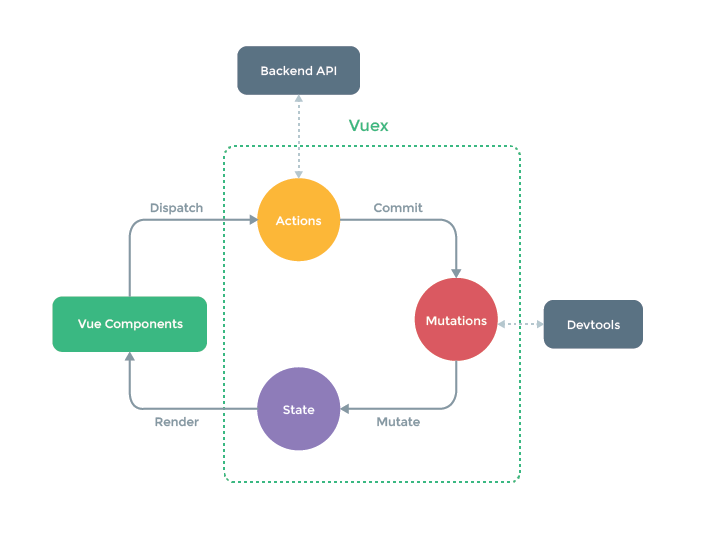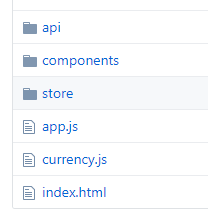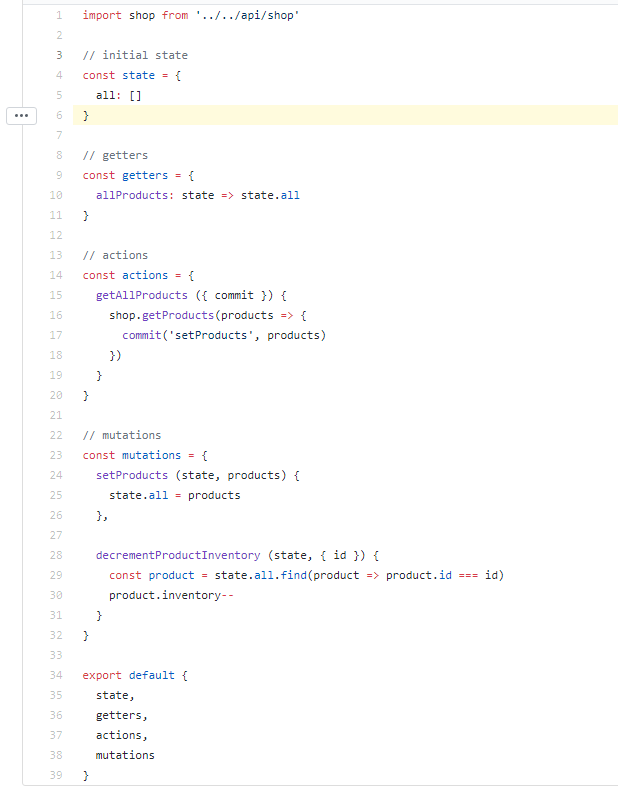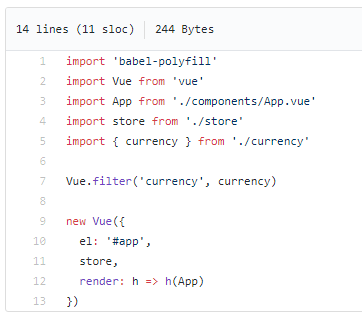vuex自己的理解
先上一张流程图
我的理解:
首先components(组件)通过dispatch方法触发actions(这里可以进行异步的操作比如后台取数据)
然后actions通过commit()方法触发mutations(这里更改state中的数据但只能进行同步操作)
最后state中的数据更新后展示在components(组件)

官网说vuex有5个核心概念:
state getter mutation action module
一.state
用于存放需要管理的数据,数据的结构根据项目自己设计,大概长这个样:
const store = new Vuex.Store({ state: { todos: [ { id: 1, text: '...', done: true }, { id: 2, text: '...', done: false } ], isShow: true, num: 0 } })
二.getter
用于获取state里面的数据。
getters是一个对象用于存放多个方法类似于计算属性需要放到计算属性里。
方法接受state作为参数返回state中的数据,
也可以接受其他getter作为第二个参数。
const store = new Vuex.Store({ state: { todos: [ { id: 1, text: '...', done: true }, { id: 2, text: '...', done: false } ] }, getters: { doneTodos: state => { return state.todos.filter(todo => todo.done) } } })
三.mutation
用于更改state中的数据。mutations是一个对象用于存放多个方法类似于事件,
方法接受state作为参数。方法不能直接调用,需要通过store.commit()的触发,方法名就是参数。
store.commit('increment')
可以在组件中使用 this.$store.commit('xxx') 提交 mutation
也可以有额外的参数如下:
mutations: { increment (state, n) { state.count += n } } // 触发 store.commit('increment', 10)
可以用常量替代mutations事件类型
// mutation-types.js export const SOME_MUTATION = 'SOME_MUTATION' // store.js import Vuex from 'vuex' import { SOME_MUTATION } from './mutation-types' const store = new Vuex.Store({ state: { ... }, mutations: { // 我们可以使用 ES2015 风格的计算属性命名功能来使用一个常量作为函数名 [SOME_MUTATION] (state) { // mutate state } } })
四.action
类似于 mutation,不同在于:
Action 提交的是 mutation,而不是直接变更状态。
Action 可以包含任意异步操作。
// 触发方式
this.$store.dispatch('increment')
actions: { increment (context) { context.commit('increment') } }
上面代码中的increment就是mutation中的方法。
Action 函数接受一个与 store 实例具有相同方法和属性的 context 对象
因此你可以调用 context.commit 提交一个 mutation,或者通过 context.state 和 context.getters 来获取 state 和 getters。
五.module
const moduleA = { state: { ... }, mutations: { ... }, actions: { ... }, getters: { ... } } const moduleB = { state: { ... }, mutations: { ... }, actions: { ... } } const store = new Vuex.Store({ modules: { a: moduleA, b: moduleB }, state: {}, mutations: {}, actions: {} }) store.state.a // -> moduleA 的状态 store.state.b // -> moduleB 的状态
目录结构:

store:

单个module:

main.js:




 浙公网安备 33010602011771号
浙公网安备 33010602011771号